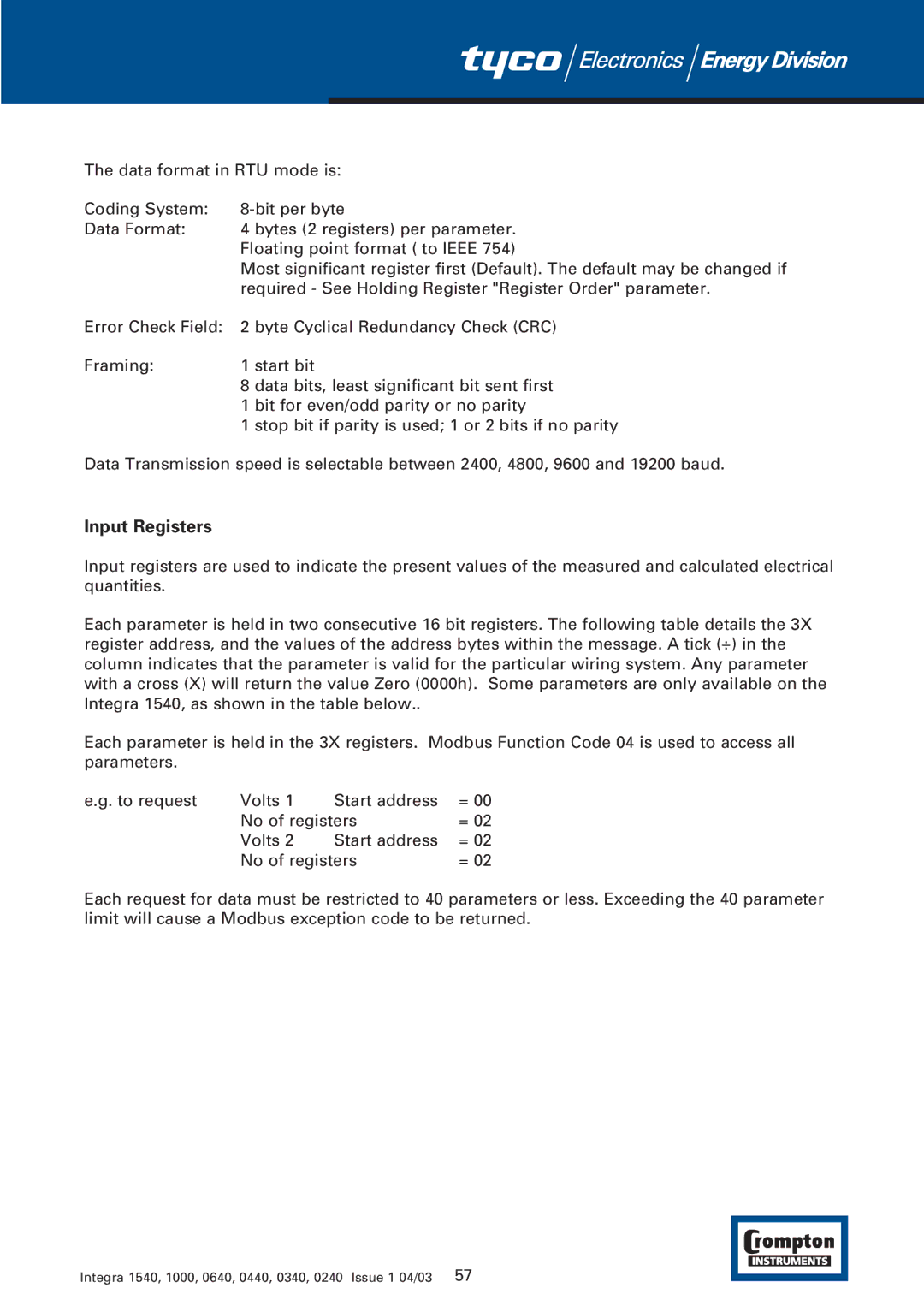1540 specifications
The Tyco 1540 is an innovative and versatile telecommunications solution that has gained popularity in various industries due to its robust features and state-of-the-art technology. Designed primarily for high-performance communication, the Tyco 1540 has become a go-to choice for service providers, enterprises, and data centers looking to enhance their network capabilities.One of the main features of the Tyco 1540 is its advanced multiplexing technology. This allows for the efficient transmission of multiple data signals over a single optical fiber, maximizing bandwidth utilization and reducing infrastructure costs. The device supports a range of protocols, making it adaptable to various network environments and requirements.
The Tyco 1540 also incorporates automation capabilities, which significantly streamline network management and operational processes. With built-in monitoring and diagnostic tools, administrators can easily track performance metrics, troubleshoot issues, and optimize network resources in real-time, thus ensuring seamless communication and minimal downtime.
Another standout characteristic of the Tyco 1540 is its scalability. As businesses grow and their communication needs evolve, the Tyco 1540 can be adjusted to accommodate increased data traffic without needing extensive hardware upgrades. This scalability is essential for organizations that need to remain agile and responsive in an ever-changing technological landscape.
Security is a critical concern in telecommunications, and the Tyco 1540 addresses this with robust encryption protocols. This functionality safeguards sensitive data transmitted across the network, providing peace of mind for organizations handling confidential information. Moreover, the device is designed to comply with industry standards and regulations, ensuring that users meet necessary compliance requirements.
Energy efficiency is another notable aspect of the Tyco 1540. The device is engineered to consume less power, reducing operational costs and minimizing the environmental impact. The incorporation of energy-saving technologies reflects a commitment to sustainable practices, which is increasingly important in today's eco-conscious world.
In conclusion, the Tyco 1540 represents a significant advancement in telecommunications technology. Its features, including advanced multiplexing, automation capabilities, scalability, enhanced security, and energy efficiency, make it an ideal choice for a wide range of applications. Organizations looking to improve their communication infrastructure can certainly benefit from integrating the Tyco 1540 into their systems. With its robust performance and adaptability, the Tyco 1540 stands out as a leading solution in the evolving telecommunications landscape.

